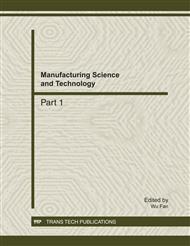p.3729
p.3734
p.3739
p.3744
p.3751
p.3758
p.3763
p.3768
p.3775
Empirical Study on Efficiency Evaluation of Low-Carbon Economy Transition in Resource-Based Cities
Abstract:
With global energy safety and climate change prompts low carbon economy transition becomes an inevitable choice for sustainable development of countries in the world. Resource-based cities, as a special type of cities formed and developed on the basis of resources, their economic growth depends on high-carbon economy more closely, to some extent, low-carbon transition will affect the city's economic growth, thus building scientific efficiency evaluation system is very important. In this paper, Analytic Hierarchy Process and fuzzy comprehensive assessment methods are used based on an empirical study, from three sides such as economic benefit, low-carbon benefits, and social benefits to build measuring system of low-carbon transition efficiency. The studies verified effectiveness of AHP and Fuzzy comprehensive assessment methods in efficiency evaluation of low-carbon economy transition.
Info:
Periodical:
Pages:
3751-3757
Citation:
Online since:
November 2011
Authors:
Price:
Сopyright:
© 2012 Trans Tech Publications Ltd. All Rights Reserved
Share:
Citation:


